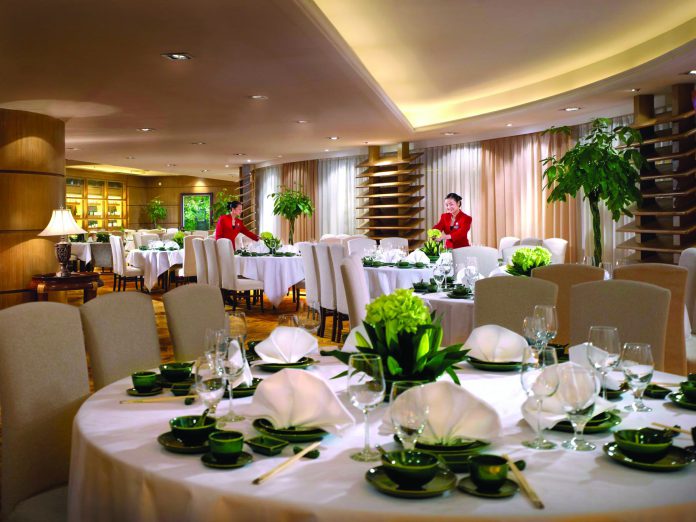Research Corner | A partnership between Macau Business and the Institute for Tourism Studies (IFT)
What features contribute to the perception among patrons that the cuisine served by a particular restaurant is authentically Cantonese? Is it just the food? Is it the ambience and environment? Or is it the staff members? A study involving a scholar from Macau’s Institute for Tourism Studies suggests all the above are contributing factors when clients weigh the authenticity of a ‘Cantonese’ eatery.

Added to these is “the importance of customers’ knowledge and experience of Cantonese cuisine as a factor that influences their perception,” researchers Pearl Lin, Ren Lianping and Chen Chen wrote.
Their work explored diners’ perception of authenticity in Cantonese cuisine. It used as a testing ground the “Shang Palace” restaurant at the Kowloon Shangri-La Hong Kong hotel. The study used three data sources, including in-depth interviews, online comments and participant observations.
Their paper, “Customers’ perception of the authenticity of a Cantonese restaurant”, was published last year in the Journal of China Tourism Research.
“In the tourism industry, authenticity has become an important attribute that attracts tourists, and has consequently become an important marketing strategy, as exemplified by building up brand experiences with authenticity as one of the most important attributes,” the researchers wrote. “The concept of authenticity is even more important in highlighting food or cuisines as ambassadors of culture and tourism.”
The Macao government has repeatedly stressed the importance of the unique gastronomic culture of Macau as a sustainable tourism attraction that should be developed as the city endeavours to attract leisure-seekers from around the world. Last November Macau became a member of the United Nations Educational Scientific and Cultural Organization (UNESCO) Creative Cities Network in the field of gastronomy.
 Authentically pleasing
Authentically pleasing
For their study, Drs Lin, Ren and Chen chose the “Shang Palace” restaurant as their testing ground, due to the eatery being promoted as a place serving traditional Cantonese-style cuisine, and the venue’s reputation for attracting locals and outside visitors. For the purposes of their academic work, Cantonese food was presented as traditional cuisine hailing from Guangzhou, or Guangdong Province, and the Pearl River Delta area, including Macau and Hong Kong.
Based on the data collected, the researchers concluded that diners valued the authenticity of their dining experience based firstly on food, followed by ambience and environment, staff, and other factors such as the restaurant’s heritage and awards it had received.
Drs Lin, Ren and Chen said their results supported findings of previous studies in the field of restaurant authenticity. But their work also generated observations particular to Cantonese cuisine.
“This study found that being nutritious and healthy are two key elements of authentic Cantonese cuisine, which is also reflected via its cooking method, such as steaming and double-boiling,” they wrote.
The researchers added: “The typical menu served in most Cantonese restaurants, such as various dim sum, barbecued meat and various pro-healthy soups, has distinguished the cuisine from others. Service style, ambience and the whole environment are also important in fostering an authentic experience with Cantonese cuisine.”
 Based on their findings, the researchers advised restaurant operators and chefs working in the field of Cantonese cuisine “to preserve the essence” of this type of gastronomy when they design their menus and manage the setting up of their eateries.
Based on their findings, the researchers advised restaurant operators and chefs working in the field of Cantonese cuisine “to preserve the essence” of this type of gastronomy when they design their menus and manage the setting up of their eateries.
An interesting conclusion from the study was that, although patrons valued authenticity and tradition, they also appreciated innovation. For instance, the tea sommelier service introduced by “Shang Palace” was judged to have strengthened the overall dining experience, based on client reviews, Drs Lin, Ren and Chen stated.
Their study also confirmed that the diners’ personal experience, knowledge and past encounters with a special type of food were important factors that influenced customer perceptions of the authenticity of a cuisine. “This result has implications for restaurant operators in terms of understanding the diners’ expectation, especially for the non-local visitors,” the researchers noted.
“By introducing interesting stories of particular dishes, the restaurant can enhance customers’ dining experience,” particularly for those clients that are visitors from outside the region, Drs Lin, Ren and Chen suggested. For eateries with a large base of foreign clients, “it is essential to promote the Cantonese dining culture among the customers,” they added.
The researchers
Pearl Lin is an assistant professor at the Hong Kong Polytechnic University’s School of Hotel and Tourism Management. Dr. Lin has a PhD from the University of Strathclyde in Glasgow, Scotland. Her research interests include culinary creativity, culinary training and education, and quality assurance in the bed and breakfast sector.
 Ren Lianping – also known as Eve Ren – is an assistant professor at Macau’s Institute for Tourism Studies. Dr. Ren holds a doctorate in hotel and tourism management from the Hong Kong Polytechnic University. Her academic research focuses on strategic management in hospitality, hotel development, and consumer behaviour.
Ren Lianping – also known as Eve Ren – is an assistant professor at Macau’s Institute for Tourism Studies. Dr. Ren holds a doctorate in hotel and tourism management from the Hong Kong Polytechnic University. Her academic research focuses on strategic management in hospitality, hotel development, and consumer behaviour.
City University of Macau assistant professor Chen Chen also holds a doctorate in hotel and tourism management from the Hong Kong Polytechnic University. Her areas of research include smart tourism and tourist experience.
The paper
Pearl M. C. Lin, Lianping Ren and Chen Chen: “Customers’ perception of the authenticity of a Cantonese restaurant”, Journal of China Tourism Research, Volume 13, Number 2, pages 211-230, 2017.
https://doi.org/10.1080/19388160.2017.1359721
























